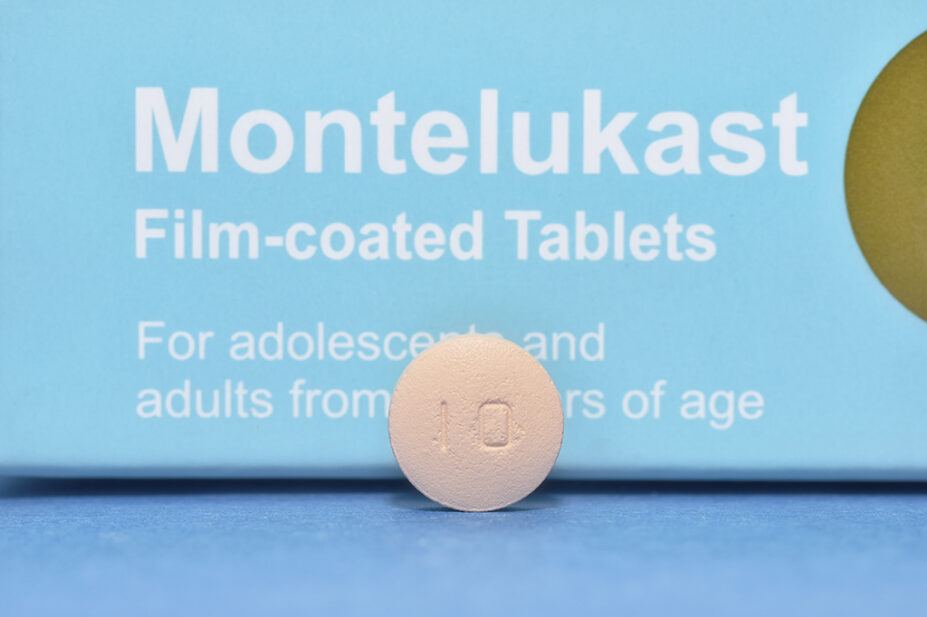
DR P. MARAZZI/SCIENCE PHOTO LIBRARY
Montelukast, a drug used for the treatment of asthma, is under review by the Medicines and Healthcare products Regulatory Agency (MHRA), following an increased number of Yellow Card reports from patients who have experienced suspected neuropsychiatric adverse reactions, including suicidal behaviour.
The drug is an oral leukotriene receptor antagonist, indicated as add-on therapy for treatment of mild-to-moderate persistent asthma for patients aged six months and older.
Yellow Card data published by the MHRA show 143 reports of psychiatric disorders associated with the drug in 2023, the highest ever number reported in a year.
On 5 March 2024, a spokesperson for the UK regulator told The Pharmaceutical Journal that it was conducting a safety review because of the Yellow Card reports and “queries received by the MHRA regarding concerns about a potential lack of awareness of the risk” of the drug.
The spokesperson added that it was “in the process of finalising our review”.
In September 2019, the MHRA published a drug safety update to remind prescribers to be on alert for neuropsychiatric reactions in patients taking montelukast, following 219 Yellow Card reports of the suspected adverse effect between 2014 and 2018.
In the drug safety update, the MHRA advised prescribers to carefully evaluate the risks and benefits of continuing treatment if neuropsychiatric reactions occur.
Commenting on the increasing Yellow Card reports for montelukast, Anna Murphy, consultant respiratory pharmacist at University Hospitals of Leicester NHS Trust, said: “Healthcare professionals must be aware of this known adverse side effect and risks associated with montelukast.
“Some asthma phenotypes seem particularly sensitive to montelukast. Generally, in practice, a four-to-six-week trial should be undertaken to assess response, only continuing if the benefit outweighs the risk,” she added.
“Evidence has revealed significant associations between montelukast and anxiety, as well as sleeping disorders, particularly in [older people].
“We need to remind healthcare professionals of the guidance contained in the MHRA publication in 2019.”
Darush Attar-Zadeh, clinical fellow respiratory pharmacist at North West London Integrated Care Board and co-chair of the Taskforce for Lung Health medicines optimisation working group, said: “A good history of the patient’s asthma is important to see if a leukotriene receptor antagonist is suitable.
“Hopefully this is an extra reminder to healthcare professionals to have these discussions and should be noted in the clinical notes as part of safety netting.”
Andy Whittamore, clinical lead at Asthma + Lung UK, said: “Montelukast is usually a very safe medication for preventing asthma flare-ups in most people but, as with all medications, montelukast does have potential side effects, although these are rare. It is crucial however that when prescribing the drug, doctors adequately explain its possible side effects.”
You may also be interested in

‘No evidence’ that paracetamol use during pregnancy causes autism, ADHD or intellectual disabilities, meta-analysis finds

Levetiracetam information updated to include studies that suggest no link to autism
